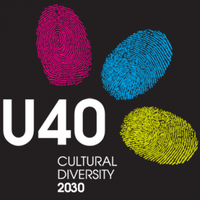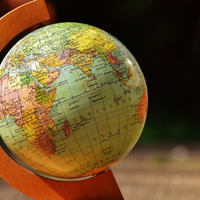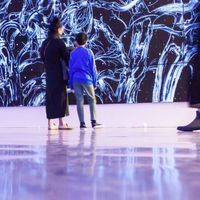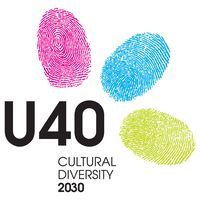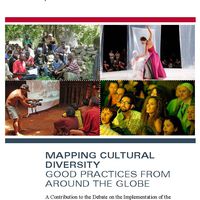Young cultural leaders for diversity of cultural expressions

[caption id="attachment_902" align="alignright" width="240" caption="UNESCO"]
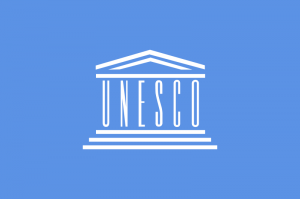 [/caption]
[/caption]Anupama Sekhar, ASEF Project Executive, Cultural Exchange attended the Under-40 World Forum - “Cultural Diversity 2030” organised by the German Commission for UNESCO and the International Federation of the Coalition for Cultural Diversity (IFCCD) from 12-14 June 2009 in Paris, France. The occasion was the 2nd Conference of Parties of the UNESCO Convention for the Protection and the Promotion of the Diversity of Cultural Expressions (15 -18 June 2009). She also attended the 2nd Conference of Parties at the UNESCO Headquarters, Paris, France as an Official Observer.
She reported for us on culture360.org
The German Commission for UNESCO and the International Federation of the Coalition for Cultural Diversity (IFCCD) jointly organised the “U40-World Forum” on the occasion of the 2nd Conference of Parties of the UNESCO Convention for the Protection and the Promotion of the Diversity of Cultural Expressions (15 to 18 June 2009).
As a pre-conference, the U40-World Forum was held back-to-back with the Conference of Parties from 12 to 14 June at the National Audiovisual Institute, Paris, France. During the two-day workshop 50 young professionals from 34 countries discussed proposals on how to implement the Convention on the Diversity of Cultural Expressions.
The U40-World Forum was opened with three contributions by the organizers of the World Forum titled “Magna Charta of an international cultural policy – The spirit of the Convention”, “Briefing and preview of the agenda of the Conference of Parties” and “Political impact of the Convention since 2005”. Thematic working groups on the “Implementation of the Convention through the EU”, the “Influence of the Internet on the diversity of cultural expressions” and “International cooperation for the protection of cultural diversity – concrete approaches” highlighted first approaches for the future life of and with the Convention.
Prior to the conference, the following topics were discussed by various participant groups:
- Increasing visibility of the Convention
- Innovative partnerships for international cooperation for the protection and promotion of expressions of cultural diversity
- Alternative fundraising for the International Fund for Culture
- Expectations from State Parties in the implementation of the Convention in five years
- Expectations from civil society with regard to the Convention in five years
These topics were discussed in depth at the two-day training. Specific emphasis was given to:
- The provisions of the Convention, ratification status, progress on implementation
- Role of civil society with regard to the Convention
- Comparison with the Convention on Intangible Heritage
- Culture vs. trade debate
- Differences between cultural diversity and expressions of cultural diversity
- Best practices from across the World
“Proposals for Cultural Diversity 2030”
As a result of the workshop, a two-page paper “Proposals for Cultural Diversity 2030” was drafted. These proposals addressed delegates from State Parties and Observers to the 2nd Conference of Parties to the UNESCO Convention on the Diversity of Cultural Expressions (2005) and to any other stakeholders of the Convention. Taking into account the Work Forum slogan “Cultural Diversity 2030”, the young culture experts plead for new conceptions in support of cultural development, cultural cooperation and cultural diplomacy, that extend beyond the traditional model of developed and developing countries. They highlighted that Cultural Diversity has a fundamental role for the sustainable development of societies. The U40-participants affirmed that civil society is a key player and partner towards achieving and implementing the objectives of the Convention. Partnerships with the media, the private sector and via new media should increase the public awareness for the values of cultural diversity, promote global cultural cooperation and enable innovative fundraising for the International Fund for Cultural Diversity.
From the second Conference of Parties to a Chatham house-dialogue
The U40-participants attended the 2nd Conference of Parties to the Convention on the Diversity for Cultural Expressions (15 to 16 of June 2009) as observers, registered through respective delegations of State Parties, intergovernmental organisations and/or NGOs. On 16 of June 2009, immediately after the closure of the Conference of Parties, a “Panel discussion” was held at the conference venue. In form of a “Chatham House dialogue”1 the U40-representatives discussed the latest results of the Conference of Parties with State Parties and civil society representatives and presented their work with the Convention as well as the “Proposals for a Cultural Diversity 2030”.
Future U40-activities
The U40-group committed itself to further promote the objectives and values of the Convention. Moreover, the group continues the discussion process via an internet platform. They will disseminate the ideas and aims of the programme and the Convention throughout their networks and beyond. In order to increase the visibility of the Convention, the U40-fellows will inter alia gather all text versions available of the 2005-Convention on the website of the IFCCD and translate the “Proposals for Cultural Diversity 2030” in their respective mother languages. Moreover, they will provide active support for identifying future partners for the U40-Capacity Building Programme. They agreed that it is necessary to support awareness-raising projects and activities on cultural diversity worldwide and in their countries, especially on the occasion of the 21st May – World Day for Cultural Diversity, for Dialogue and Development. The U40 participants will be awarded the title of U40 Fellows (2009-11) in order to further engage with government and civil society actors on the Convention. A compilation of Best Practices relating to the Convention is also under consideration.
ASEF is working towards a publication on best practices related to the Convention, in collaboration with the German Commission for UNESCO.
Further resources:
The Declaration for proposals on cultural diversity 2030
Similar content
posted on
04 Nov 2013
posted on
03 Sep 2021
posted on
11 Nov 2010
deadline
15 Jun 2022
deadline
15 Aug 2010
posted on
29 Nov 2010

